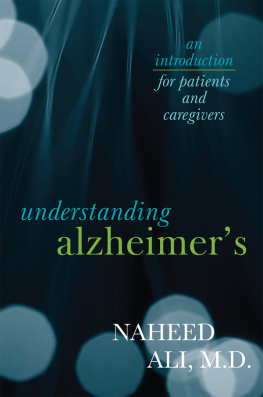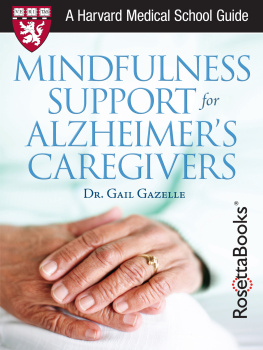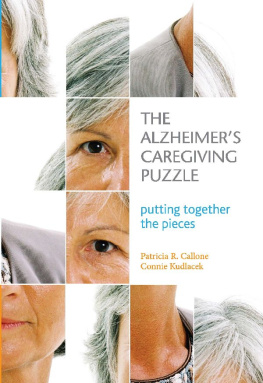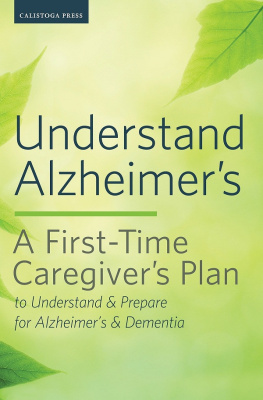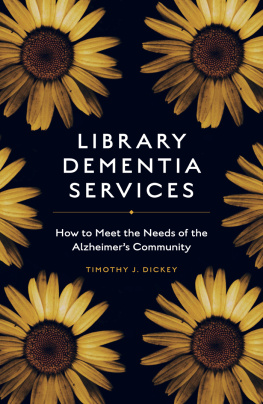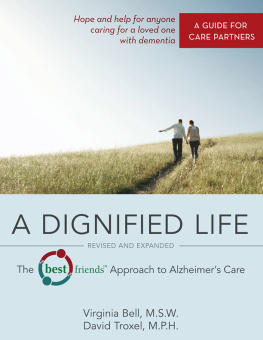Stephen G. Post - Dignity for Deeply Forgetful People: How Caregivers Can Meet the Challenges of Alzheimers Disease
Here you can read online Stephen G. Post - Dignity for Deeply Forgetful People: How Caregivers Can Meet the Challenges of Alzheimers Disease full text of the book (entire story) in english for free. Download pdf and epub, get meaning, cover and reviews about this ebook. year: 2022, publisher: Johns Hopkins University Press, genre: Home and family. Description of the work, (preface) as well as reviews are available. Best literature library LitArk.com created for fans of good reading and offers a wide selection of genres:
Romance novel
Science fiction
Adventure
Detective
Science
History
Home and family
Prose
Art
Politics
Computer
Non-fiction
Religion
Business
Children
Humor
Choose a favorite category and find really read worthwhile books. Enjoy immersion in the world of imagination, feel the emotions of the characters or learn something new for yourself, make an fascinating discovery.

- Book:Dignity for Deeply Forgetful People: How Caregivers Can Meet the Challenges of Alzheimers Disease
- Author:
- Publisher:Johns Hopkins University Press
- Genre:
- Year:2022
- Rating:4 / 5
- Favourites:Add to favourites
- Your mark:
Dignity for Deeply Forgetful People: How Caregivers Can Meet the Challenges of Alzheimers Disease: summary, description and annotation
We offer to read an annotation, description, summary or preface (depends on what the author of the book "Dignity for Deeply Forgetful People: How Caregivers Can Meet the Challenges of Alzheimers Disease" wrote himself). If you haven't found the necessary information about the book — write in the comments, we will try to find it.
For caregivers of deeply forgetful people: a book that combines new ethics guidelines with an innovative program on how to communicate and connect with people with Alzheimers.
How do we approach a deeply forgetful loved one so as to notice and affirm their continuing self-identity? For three decades, Stephen G. Post has worked around the world encouraging caregivers to become more aware ofand find renewed hope insurprising expressions of selfhood despite the challenges of cognitive decline.
In this book, Post offers new perspectives on the worth and dignity of people with Alzheimers and related disorders despite the negative influence of hypercognitive values that place an ethically unacceptable emphasis on human dignity as based on linear rationality and strength of memory. This bias, Post argues, is responsible for the abusive exclusion of this population from our shared humanity. With vignettes and narratives, he argues for a deeper dignity grounded in consciousness, emotional presence, creativity, interdependence, music, and a self that is not gone but differently abled. Post covers key practical topics such as:
understanding the experience of dementia
noticing subtle expressions of continuing selfhood, including paradoxical lucidity
perspectives on ethical quandaries from diagnosis to terminal care and everything in between, as gleaned from the voices of caregivers
how to communicate optimally and use language effectively
the value of art, poetry, symbols, personalized music, and nature in revealing self-identity
the value of trained dementia companion dogs
At a time when medical advances to cure these conditions are still out of reach and the most recent drugs have shown limited effectiveness, Post argues that focusing discussion and resources on the relational dignity of these individuals and the respite needs of their caregivers is vital. Grounding ethics on the equal worth of all conscious human beings, he provides a cautionary perspective on preemptive assisted suicide based on cases that he has witnessed. He affirms vulnerability and interdependence as the core of the human condition and celebrates caregivers as advocates seeking social and economic justice in an American system where they and their loved ones receive only leftover scraps. Racially inclusive and grounded in diversity, Dignity for Deeply Forgetful People also includes a workshop appendix focused on communication and connection, A Caregiver Resilience Program, by Rev. Dr. Jade C. Angelica.
Stephen G. Post: author's other books
Who wrote Dignity for Deeply Forgetful People: How Caregivers Can Meet the Challenges of Alzheimers Disease? Find out the surname, the name of the author of the book and a list of all author's works by series.


